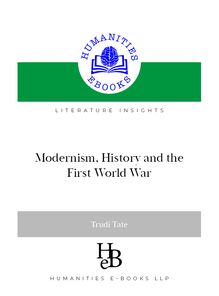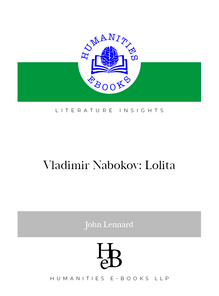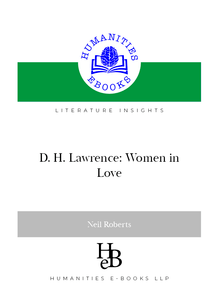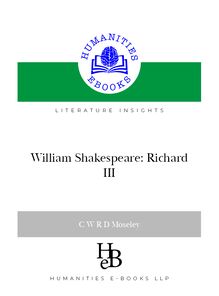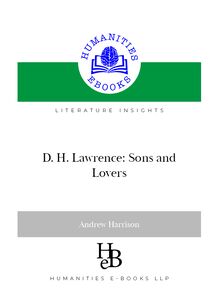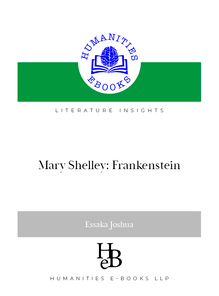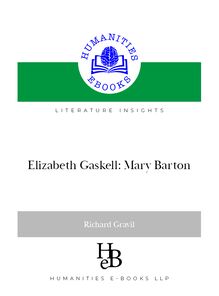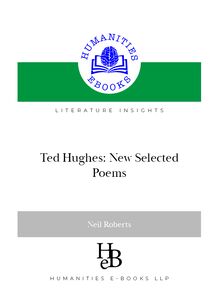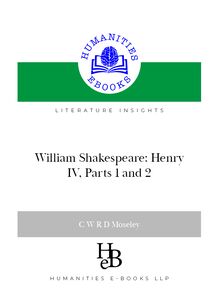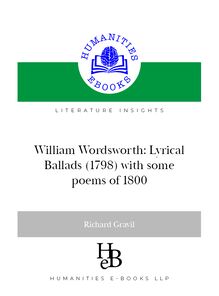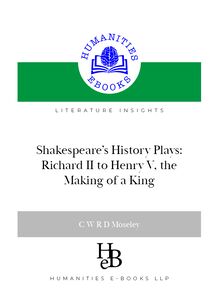-
 Univers
Univers
-
 Ebooks
Ebooks
-
 Livres audio
Livres audio
-
 Presse
Presse
-
 Podcasts
Podcasts
-
 BD
BD
-
 Documents
Documents
-
- Cours
- Révisions
- Ressources pédagogiques
- Sciences de l’éducation
- Manuels scolaires
- Langues
- Travaux de classe
- Annales de BEP
- Etudes supérieures
- Maternelle et primaire
- Fiches de lecture
- Orientation scolaire
- Méthodologie
- Corrigés de devoir
- Annales d’examens et concours
- Annales du bac
- Annales du brevet
- Rapports de stage
La lecture à portée de main
85 pages
English
Découvre YouScribe en t'inscrivant gratuitement
Je m'inscrisDécouvre YouScribe en t'inscrivant gratuitement
Je m'inscris
Obtenez un accès à la bibliothèque pour le consulter en ligne
En savoir plus
En savoir plus
85 pages
English
Obtenez un accès à la bibliothèque pour le consulter en ligne
En savoir plus
En savoir plus

Description
A brilliant new study of perhaps the finest English poet of the 20th Century, by a distinguished critic and scholar.
Sujets
Informations
| Publié par | Humanities eBooks |
| Date de parution | 11 janvier 2021 |
| Nombre de lectures | 0 |
| EAN13 | 9781847600318 |
| Langue | English |
Informations légales : prix de location à la page 0,0250€. Cette information est donnée uniquement à titre indicatif conformément à la législation en vigueur.
Extrait
Literature Insights General Editor: Charles Moseley
RUnnInG HEàD 1
Ted Hughes
New Selected Poems
NEIL ROBErTS
‘…the life we share with other creatures … the realm of the sacred…’
http//www.humanities-ebooks.co.uk FoRadviceoNuseoFtHisebookpleasescRolltopage2
publicatioNdata
© NEIL ROBErTS, 2007
The Author has asserted his right to be identiîed as the author of this Work In àCCOrDànCE wITh ThE cOPyrIGhT, dESIGnS ànD pàTEnTS aCT 1988.
pUBLIShED ByHumanities-Ebooks.co.uk tIrrIL HàLL, tIrrIL, pEnrITh ca10 2Je
ReadiNgoptioNs
*To use the navigation tools, the search facility, and other features of the toolbar, this Ebook should be read in default view. *To navigate through the contents use the hyperlinked ‘Bookmarks’ at the left of the screen. *To search, expand the search column at the right of the screen or click on the binocular symbol in the toolbar. *For ease of reading, use <CTRL+L> to enlarge the page to full screen *Use <Esc> to return to the full menu. *Hyperlinks appear in Blue Underlined Text. To return from an internal hyperlink use the ‘previous view’ button and repeat if necessary. *For a computer generated reading use <View>Read out Loud>
liceNceaNdpeRmissioNs
Purchasing this book licenses you to read this work on-screen and to print one copy for your own use. Copy and paste functions are disabled. No part of this publication may be otherwise reproduced or transmitted or distributed without the prior written permission of both the copyright owner and the pub-lisher. Making or distributing copies of this book constitutes copyright infringe-ment and would be liable to prosecution. Thank you for respecting the rights of the author.
isbN 978-1-84760-031-8
Ted Hughes: ‘New Selected Poems’
Neil Roberts
Bibliographical Entry: Roberts, Neil.Ted Hughes: ‘New Selected Poems’. Literature Insights. Tirril: Humanities-Ebooks, 2007
Contents
A Note on the Author
Part 1: The context ofNew Selected Poems 1.1 General Introduction 1.2 Hughes’s early life 1.3 Early writing 1.4 Cambridge and the Burnt Fox 1.5 Sylvia Plath 1.6Crowand more tragedy 1.7 Persecution 1.8 The Poet Laureate
Part 2: Artistic strategies and inuences 2.1 ‘Dialect’ 2.2 Shakespeare, Romantics and Moderns 2.3The White Goddess 2.4 The inuence of Sylvia Plath 2.5 Shamanism 2.6 East European Poetry 2.7 Trickster Mythology 2.8 Confessional poetry
Part 3: ReadingNew Selected Poems 3.1The Hawk in the Rain 3.2Lupercal 3.3Wodwo 3.4Crow
3.5Cave Birds 3.6Season Songs 3.7Gaudete 3.8Remains of Elmet 3.9Moortown Diary 3.10River 3.11Wolfwatching 3.12 Uncollected Poems
Part 4: Reception
Part 5: Bibliography 5.1 Works by Ted Hughes 5.2 Web Sites 5.3 Criticism and Biography 5.4 Other Works
Part 6: Appendices Appendix 1:Wodwo Appendix 2: Vacanas
Ted Hughes
A Note on the Author
Neil Roberts studied English at the University of Cambridge where he took an MA and PhD. Since 1970 he has taught at the University of Shefîeld, where he is Professor of English Literature. He is the author ofGeorge Eliot: Her Be-liefs and Her Art(Elek, 1975),Ted Hughes: A Critical Study(with Terry Gif-ford, Faber, 1981),The Lover, the Dreamer and the World: the Poetry of Peter Redgrove(Shefîeld Academic Press, 1994),Meredith and the Novel(Macmil-lan, 1997),Narrative and Voice in Postwar Poetry(Longman, 1999),D. H. Lawrence, Travel and Cultural Difference(Palgrave, 2004)Ted Hughes: A Lit-erary Life(Palgrave, 2006), andD. H. Lawrence: ‘Women in Love’(Literature Insights, 2007). He is the editor ofA Companion to Twentieth-Century Poetry (Blackwell, 2001) and ofThe Colour of Radio: Essays and Interviewsby Peter Redgrove (Stride, 2006). He is currently writing a biography of Peter Redgrove.
Part 1: The context ofNew Selected Poems
1.1 General Introduction
For the last fourteen years of his life Ted Hughes was Poet Laureate, and his poetry is in many ways fairly traditional. It is therefore easy to regard him as an establishment îgure. But in a profound way Hughes was strongly anti-establish-ment. He began his career as a poet in the post-war years when the most power-ful current in western societies was a materialistic belief in progress driven by the exploitative domination of nature. By contrast Hughes’s life and work were centred on a deep and religious attachment to the natural world, and a belief that the real self of a human being is not the rational intellect but the life we share with other creatures. This, to him, was the realm of the sacred, with which he believed western civilisation had disastrously lost contact. Like the Latin poet Ovid, as he put it in his introduction to his bookTales from Ovid,Hughes lived in an age in which ‘the obsolete paraphernalia of the ofîcial religion were lying in heaps ... and new ones had not yet arrived ... The mythic plane, so to speak, 1 had been defrocked.’ Hughes’s response was to draw eclectically on a wide range of myths and anti-rational discourses, as a way of resisting the hegemony of rationalistic materialism and keeping faith with what to him was the inner life. The poetry that resulted from this endeavour, over a period of nearly half a century, was bold in its imaginative scope, often visceral in its imagery, varied in its technical and generic devices, energetic in its sound and rhythms. The highlights ofNew Selected Poemsrange from the animal poems that made him famous to mythological sequences, poems for children, down-to-earth farm-ing poems and, at the end of his life, haunting elegies for his îrst wife Sylvia Plath. New Selected Poemswas published in 1995, three years before Hughes’s death, and at a low point in his critical reputation. It was the last and largest of
1Tales from Ovid, pp. x–xi
Ted Hughes 8
four selections of his work, beginning with a jointSelected Poemswith Thom Gunn in 1962. Most readers would have considered at the time that Hughes would do little more to change public perception of his work. However, in the last two years of his life he published two volumes which did just that. These wereTales from Ovid, a collection of loose translations from the Latin poet Ovid’sMetamorphoses, andBirthday Letters, a collection of elegies for his poet wife Sylvia Plath, who had committed suicide in 1963.Tales from Ovid(1997) showed evidence of a renewed poetic vitality and was treated as an original work despite its reliance on the Latin original.Birthday Lettershad a (1998) far more profound effect on perceptions of Hughes not only as a poet but as a man: the book led to a revaluation of his relationship with Plath; it also showed him practising a directly autobiographical kind of poetry that he had previously despised. Few readers had noticed that eight of these poems had already been published in the ‘Uncollected’ section ofNew Selected Poems. For the most partNew Selected Poemsis a straightforward collection of the poems Hughes valued most highly in the various books that he published throughout his career. It does have a few peculiarities, however, which a reader not already familiar with his work might not notice. It opens with ‘The Thought-Fox’ from his îrst volumeThe Hawk in the Rain(1957). But this was not origi-nally the îrst poem in that volume. By moving it to the front Hughes signals that it has a special importance, as the gateway to the world of his poetry. More dramatically, he concludes the volume with the poem ‘A Dove’, which is chron-ologically displaced from the volume in which it was originally published, Wolfwatching(1988) and listed in isolation in the Contents: an even stronger indication that this poem is specially signiîcant for its author. Throughout his life Hughes wrote for children as well as for adults, and published altogether ten volumes of children’s poetry. Sometimes the bound-ary between poetry for children and for adults was blurred. Two of the volumes from which he selects poems inNew Selected—Season SongsandWhat is the Truth?—were published as children’s books. ASelected Poemsgives its author a chance to revise his opinion of his earlier work. The section titled ‘Recklings’ consists of poems that Hughes originally rejected from his collectionWodwo(1967) (see Appendix 1): here he leaves out some of theWodwopoems and includes these instead.
-
 Univers
Univers
-
 Ebooks
Ebooks
-
 Livres audio
Livres audio
-
 Presse
Presse
-
 Podcasts
Podcasts
-
 BD
BD
-
 Documents
Documents
-
Jeunesse
-
Littérature
-
Ressources professionnelles
-
Santé et bien-être
-
Savoirs
-
Education
-
Loisirs et hobbies
-
Art, musique et cinéma
-
Actualité et débat de société
-
Jeunesse
-
Littérature
-
Ressources professionnelles
-
Santé et bien-être
-
Savoirs
-
Education
-
Loisirs et hobbies
-
Art, musique et cinéma
-
Actualité et débat de société
-
Actualités
-
Lifestyle
-
Presse jeunesse
-
Presse professionnelle
-
Pratique
-
Presse sportive
-
Presse internationale
-
Culture & Médias
-
Action et Aventures
-
Science-fiction et Fantasy
-
Société
-
Jeunesse
-
Littérature
-
Ressources professionnelles
-
Santé et bien-être
-
Savoirs
-
Education
-
Loisirs et hobbies
-
Art, musique et cinéma
-
Actualité et débat de société
- Cours
- Révisions
- Ressources pédagogiques
- Sciences de l’éducation
- Manuels scolaires
- Langues
- Travaux de classe
- Annales de BEP
- Etudes supérieures
- Maternelle et primaire
- Fiches de lecture
- Orientation scolaire
- Méthodologie
- Corrigés de devoir
- Annales d’examens et concours
- Annales du bac
- Annales du brevet
- Rapports de stage
Signaler un problème
YouScribe
Le catalogue
Le service
© 2010-2024 YouScribe
